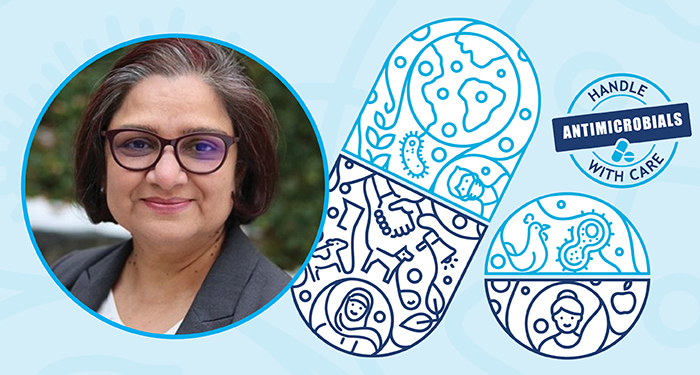Statement from Dr. Charu Kaushic for World Antimicrobial Awareness Week

November 18th to 24th is World Antimicrobial Awareness Week (WAAW), an annual event that aims to improve awareness and understanding of antimicrobial resistance (AMR) and encourage best practices among the public, One Health stakeholders, and policymakers. The theme of this year’s global campaign is “preventing antimicrobial resistance together,” which encourages all sectors to work collaboratively through a One Health approach. This message is of critical importance as successfully addressing the threat of AMR requires a coordinated and unified response across all areas of human, animal, and environmental health. It also reminds us that in combatting AMR, we must ensure equitable outcomes in marginalized and vulnerable populations and address gendered differences in occupation and caregiver responsibilities that can influence who is at risk for infections and what care they receive.
Antimicrobial resistance and support for One Health are priority areas for the Canadian Institutes for Health Research (CIHR), having invested nearly $133 million in multi-disciplinary AMR programs and partnerships over the span of five years (2017 to 2022). Such investments are vital to preserving our health care systems and to improving the health and safety of people in Canada and globally.
Recognizing that the development of effective policies in Canada requires evidence to evaluate AMR intervention strategies, the CIHR Antimicrobial Resistance Research Initiative under the co-leadership of CIHR's Institute of Infection and Immunity (III) and CIHR's Institute of Population and Public Health (IPPH) has launched a new funding opportunity to support research in this area. We encourage interested participants from all disciplines and career stages to apply, and to learn more about what the Government of Canada is doing on AMR through CIHR-funded research.
Although AMR will continue to be a major challenge to health systems across the globe, progress is being made thanks to research, regulation, and collaboration across disciplines. By broadening our understanding of the scope of AMR and considering a more unified, One Health perspective, we can strengthen the fight against AMR, together.
- Date modified: